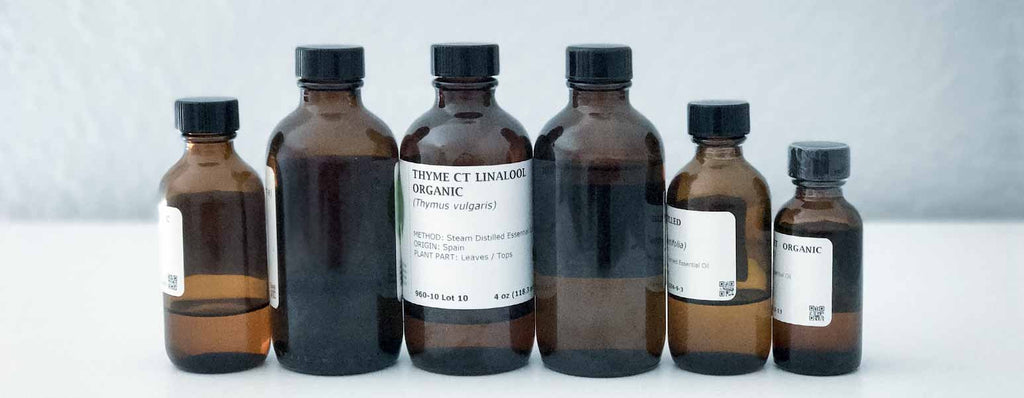The Truth About Natural Insect Repellents

Not all natural insect repellents are equal. The ingredients, scent, strength and efficacy can vary greatly. I’ve used and researched a variety of natural repellents, and the results run the gamut from lovely botanical perfume oil to a mist that resulted in headache and scratchy throat for my entire family.
With the rise of available natural products on the market and no shortage of DIY bug spray recipes online, it’s clear that consumers are seeking safer, natural alternatives to synthetic, conventional repellents. The question is, do natural repellents really work? If you are the least bit skeptical about dropping DEET for a botanical blend... read on!
The use of botanical ingredients to repel insects is not at all new. In fact, it has been recorded by ancient Greek, Roman and Indian scholars and continues today, particularly in rural or impoverished communities where use of plants may be the only means of protection against disease-carrying mosquitoes. Traditionally, bruised herbs were hung in bunches around homes and gathering places, or burned to release a repelling smoke, and the oil was used on skin and clothing. Egyptian fisherman used castor oil to protect their skin from bites during the day and then burned the same castor oil in their lamps at night.
A few weeks ago, we covered some of the things that attract mosquitoes. Now, let's look at what repels them.
Studies show that both DEET and natural oils can effectively repel mosquitoes by 1) blocking electrophysiological responses to olfactory sensory neurons to attractive odors, and 2) olfaction-causing avoidance behavior.
The active ingredients in natural repellents are almost aways oils and essential oils. Some contain inactive ingredients such as water, at 50% or more. We choose to use only active ingredients in Zoe Organics Insect Repellent, with all the base oils AND essential oils being considered active repellents by the EPA.
Essential oils are amazingly complex, and are made up of anywhere from 10 to more than 500 components. These chemical components dictate much of an essential oil's therapeutic behavior. For example, oils rich in monoterpenols (such as citronellol, geraniol and menthol) tend to have high insect-repelling properties.
But while natural oils and essential oils have proven effective as repellents, here's the catch. Essential oils are volatile compounds, which means they evaporate rather quickly. When compared with a synthetic product like DEET, essential oils only repel for a fraction of the time, which means they need to be reapplied more often.
“The most effective of these [essential oils] include thyme oil, geraniol, peppermint oil, cedar oil, patchouli and clove that have been found to repel malaria, filarial and yellow fever vectors for a period of 60-180 mins. Most of these essential oils are highly volatile and this contributes to their poor longevity as mosquito repellents.”
– Marta Ferreira Maia and Sarah J Moore, "Plant-based insect repellents: a review of their efficacy, development and testing"
So now for the big question. Is the inconvenience of having to re-apply every hour or two worth the trade-off?
Well, we sure think so! Especially when you can smell good and feel good doing it!!
What do you think? Are you struggling with the decision to go DEET-free? We'd love to hear from you – leave your comments below!


Comments on this post (4)
Hi Susanne!
This is Lee from Zoe Organics! Thanks for your question. Since essential oils evaporate after a certain period of time, we wouldn’t recommend our Insect Repellent. Maybe you could check with your local nursery to see if they have any natural remedies?
— Lee
Hi Amanda!
This is Lee from Zoe Organics! Thank you for your question! Our Insect Repellent is effective at repelling mosquitoes and a variety of bugs and insects. Though research supports many of the essential oils in our Insect Repellent are helpful in repelling ticks, the risks associated with Lyme disease are serious, and we do not recommend relying on this alone to keep you or your kids tick-free. Sorry, mama. I know how frustrating that is!
— Lee
I like to know if zoe organic insect repellent be used to spray rose plants outside to protect from bugs
— Susanne Miura
I would love to not use DEET, especially on my kids. BUT, ticks are so prevalent where I live, especially this year, that I’m scared to use something more natural. Will the essential oils do anything to prevent ticks bites?
— Amanda